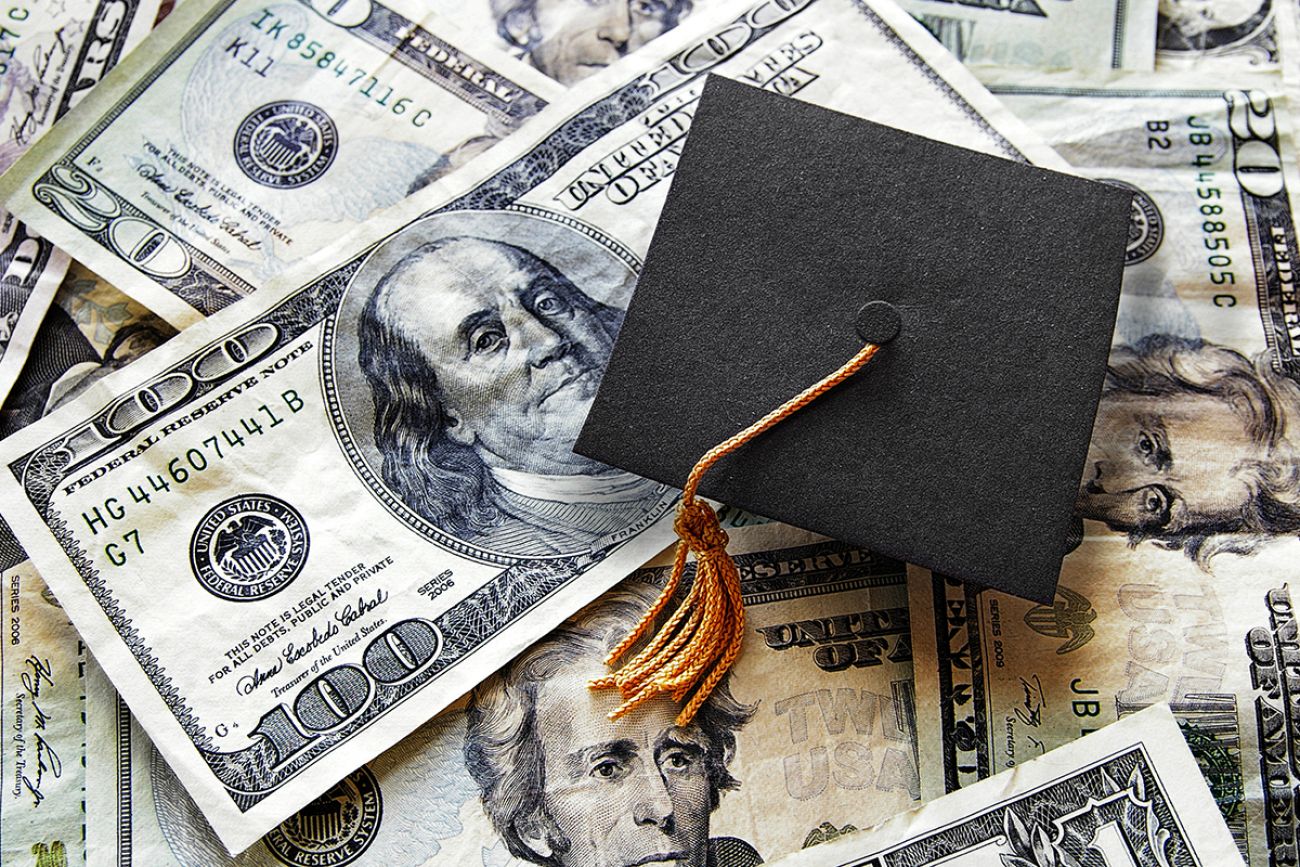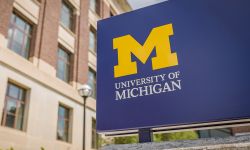Student loan forgiveness could help 1.4 million in Michigan. What to know

President Joe Biden is considering canceling some college loan debt. That could be a big deal for 1.4 million Michigan residents who owe money for either attending or helping their kids attend college.
Just how big of a deal it would be, and who would qualify for help, isn’t certain.
The parameters of a potential forgiveness program are still being debated, along with whether the Biden administration would try to enact the program on its own or go through Congress.
Related:
- Without state help, school tutoring strains to halt COVID learning loss
- U-M braces for protests of Fauci visit. Students brace for mixed feelings
- At Michigan State, graduation haunted by ‘what could have been’ without COVID
As college tuitions have skyrocketed, student debt has grown by 248 percent since 2006 to $1.7 trillion nationwide. It’s now the second-largest type of debt in the United States, behind mortgages. Nearly a third of U.S. families still have student debt at age 40.
White House officials expect to reach a decision on whether to move forward with a loan forgiveness program by the end of summer.
Here’s an overview of the issue, especially as it relates to Michigan.
How much student loan debt is there in Michigan?
One in seven Michigan residents have a current student loan, a total of $51 billion. The average college student in Michigan now leaves college with $36,000 in student loans.
Can the president cancel student loans?
That’s not clear. Congress so far hasn’t taken up Biden’s calls to pass bills to cancel student debt, so he could try to issue an executive order to do so, or as Harvard Law School report suggests, instruct U.S. Secretary of Education Miguel Cardona to cancel the debt through the Higher Education Act.
Not everyone agrees that Biden has that power, so any action likely would be challenged in court. But Biden’s administration has already canceled $17 billion in college debt, for students who work in public service, are permanently disabled or borrowers who were misled by less-than-scrupulous colleges.
Aren’t student loans owed just by young people just out of college?
Parents often take out federal loans to help pay for their children’s college, too. And the loans taken out by 18- to 22-year-olds often take decades to pay off.
In Michigan, 48 percent of existing student loans are among people age 35 or older.
What loans would be forgiven?
It’s likely that only federal student loans would qualify. Such loans include Direct Loans and Parent PLUS loans owned by the federal government. The Biden administration is not likely to forgive private loans because they are owned by financial institutions, companies and advisers.
According to the Education Data Initiative, about 2.4 million Americans have private student loans.
Would all my debt be forgiven?
It’s highly unlikely that the Biden administration would cancel all debt owed by the 43 million federal student loan borrowers.
White House officials are apparently considering forgiving up to $10,000 per borrower. So far, the president has pushed back against Democratic congressional leaders’ calls to cancel up to $50,000 or all of the debt.
According to the Federal Reserve Bank, forgiving $10,000 in student loans per borrower would wipe out $321 billion in debt, and eliminate the entire balance for 31 percent of borrowers.
In Michigan, 14 percent of student loan borrowers have a balance under $5,000, and 21 percent have a balance between $20,000 and $40,000, according to educationdata.org.
Would everyone qualify?
It’s likely that the Biden administration would implement income caps for student loan forgiveness. The Washington Post reported that the administration is considering limiting relief to people who earned less than $125,000 or $150,000 the previous year, or $250,000 to $300,000 for couples.
Sources who spoke to the Washington Post stressed the plan was fluid and subject to change.
Would this apply to existing debt only?
So far, that seems to be the case. Those who have paid off their student loans, or students who enroll in college in the future, would not be included. But stay tuned.
What’s the argument for doing this?
Eliminating or cutting student loan debt could be an economic stimulus for the nation, as people could use money now spent on student loan payments for other purchases, such as cars, homes and starting new businesses. That’s particularly true among minority and low-income families, who tend to owe more and yet graduate at a lower rate
For example, four in 10 student loan borrowers didn’t complete their degree, meaning they aren’t getting the financial benefit of college degrees, but they do get the debt. Among Black college students, 54 percent don’t earn a degree within six years of enrollment.
Others argue that forgiving debt could narrow the income gap between white and Black graduates. One study found that, four years after college, Black graduates owe $53,000, nearly twice their white counterparts.
In a recent national poll, 64 percent supported some level of student loan forgiveness.
What are the arguments against?
People who go to college already, on average, earn more than those who don’t: $55,000 on average, one year after graduation, more than $30,000 more than those with a high-school diploma.
So, in effect, the benefit would go mostly to the middle and upper class.
The poorest 20 percent of Americans, as measured by income, hold just 8 percent of the total share of student debt.
Eliminating all or some of current student debt is a temporary fix and does nothing to address the skyrocketing cost of college.
Opponents also contend that any benefits to the overall economy are overstated, and in fact, wiping out student debt could make inflation worse, amid fears that the nation is already inching toward a recession.
And then there’s the question of fairness: Why is the federal government helping those who haven’t paid off college, and not offering similar aid to those who’ve already paid their student loans or never went to college at all?
Why forgive this kind of loan as opposed to car loans or credit card debt?
The answer to that is in the name – federal student loans are borrowed through the federal government, and thus can be eliminated by the feds. Biden and Congress have much less control over loans and credit card debt taken out against private banks.
Should I stop making payments on my loan now in case they’re going to be forgiven soon?
You already don’t have to make payments now, because federal student loan payments have been paused since the beginning of the pandemic, in spring 2020. The Biden administration recently extended the student loan pause until September. So it makes financial sense, at least until September, to wait and see if loans will be forgiven.
Michigan Education Watch
Michigan Education Watch is made possible by generous financial support from:
Subscribe to Michigan Education Watch
See what new members are saying about why they donated to Bridge Michigan:
- “In order for this information to be accurate and unbiased it must be underwritten by its readers, not by special interests.” - Larry S.
- “Not many other media sources report on the topics Bridge does.” - Susan B.
- “Your journalism is outstanding and rare these days.” - Mark S.
If you want to ensure the future of nonpartisan, nonprofit Michigan journalism, please become a member today. You, too, will be asked why you donated and maybe we'll feature your quote next time!






